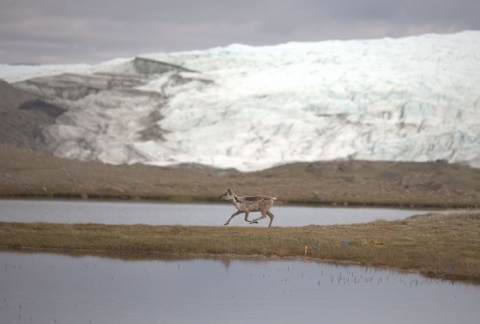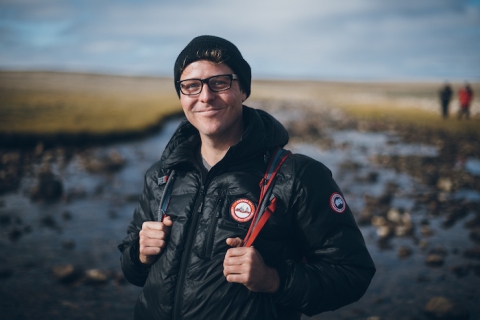Originally planned: 18-22 October 2021, postponed to 25-29 April 2022.
The successful MOSAiC expedition collected terabytes of data and thousands of samples during the year of the expedition. Now, more than one year after the end of the expedition, a large meeting is being organized to present and discuss the scientific results. The “International MOSAiC Science Conference/Workshop” will be held on the Telegrafenberg campus in Potsdam, Germany. The organizers hope to host an in-person meeting but they are planning a fully hybrid setting with strong online participation options, allowing everyone to adapt to any situation.
The “International MOSAiC Science Conference/Workshop” addresses the whole MOSAiC community and offers the chance to present preliminary experimental and modelling results and to enhance the interaction and interlinkages between the different disciplines of the coupled Arctic climate system. Supporting this, the meeting offers platforms to develop future analyses and publication strategies, support and foster connections to other groups and disciplines and to identify and develop joint projects. The meeting will advertise the unique data sets and attract the big modelling centers. In such a way the “International MOSAiC Science Conference/Workshop” will function as a big step towards the improvement of the sea ice and weather forecast and regional and global climate models.
The organizers envision a meeting concept that combines aspects of a conference and a workshop with sessions for oral and poster presentations and a great number of breakout sessions for detailed discussions. Therefore, the meeting offers plenary sessions in the beginning to inform generally about the scientific status of MOSAiC and breakout sessions for the individual MOSAiC Teams. In addition, there will be parallel sessions following the character of a conference with scientific oral and poster presentations on Tuesday and Wednesday. For those sessions, abstracts can be submitted. Furthermore, towards the end of the week, it is planned to have breakout sessions that allow detailed discussions. Many topics are already defined, but there will be capacity to spontaneously develop breakout sessions to respond to topics that will come up during the meeting.
Registration and Abstracts
The organizers would like to encourage new colleagues within MOSAiC related projects to attend the conference who started after the registration in 2021. The registration website will reopen by 1st of March 2022 and new registrations are possible until 31st of March 2022.
Abstracts for talks can be submitted and will be used to fill free slots if any become available. New abstracts for posters are welcome as well. Abstracts to the proposed sessions can be submitted until March 31st 2022.


